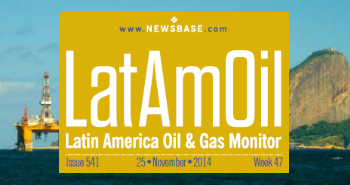Citgo teeters amid Venezuela crisis and $20bn creditor claims

What? Citgo’s future still hangs in the balance
Why? It is grappling with mounting legal and financial issues
What next? Citgo’s woes mirror Venezuela's oil sector problems
The future of Citgo, once a crown jewel in Venezuela's overseas oil empire, hangs in the balance as the company faces mounting losses and legal challenges. The US-based refiner, grappling with a $25mn loss in the second quarter of 2024 and the looming threat of asset auctions to settle national debts, finds itself in an increasingly precarious position.
This dire situation has drawn sharp criticism from veteran Venezuelan oil union leaders, who view Citgo's struggles as emblematic of broader institutional decay within the country's oil sector, El Nacional reported.
“Citgo has historically been a symbol of Venezuela’s oil potential abroad. However, what we are seeing now is the direct result of an incapable administration that has neither the vision nor the capacity to run a company of this magnitude. What is happening with Citgo is a reflection of what has happened to the country: a progressive disintegration of our institutions and our resources,” union leader Juan Martínez told the publication.
The management of Citgo, installed by Juan Guaidó's interim government in 2019 with Washington's blessing, has come under fire for its perceived inability to steer the company through turbulent waters. Critics argue that while other US refiners have managed to generate profits, Citgo's financial performance has faltered, exposing what they describe as managerial incompetence.
19 lawsuits in US courts
The company's woes extend beyond financial losses. The US seventh-largest refiner, owned by Venezuela's state-owned oil firm Petroleos de Venezuela (PDVSA) since 1990 but under the opposition's control since 2019, faces over 19 lawsuits in Delaware courts, each carrying the potential for asset auctions - a scenario that would deal a severe blow to Caracas' overseas interests.
Union leaders contend that Citgo's predicament mirrors the broader challenges facing Venezuela's oil industry. They draw parallels between the current board and previous administrations loyal to the Chavista government implicated in financial improprieties, suggesting a cross-party pattern of mismanagement that has eroded the once-solid foundations of Venezuela's oil sector.
The crisis at Citgo is viewed not merely as a corporate challenge, but as a threat to national sovereignty. The potential loss of this strategic asset is seen as jeopardising both a significant revenue stream and a symbol of Venezuela's international oil presence.
Calls for change are growing louder, with union representatives advocating for increased worker participation in decision-making processes. They argue that historically, Venezuelan oil workers have demonstrated resilience and management capability during critical periods.
Venezuela’s wider challenges
The Citgo saga unfolds against the backdrop of Venezuela's long-standing economic struggles and complex political landscape in the wake of the recent disputed election.
With multiple stakeholders vying for control and a looming auction aimed at satisfying creditors’ claims for over $20bn stemming from past expropriations during the tenure of former president Hugo Chavez, the future of Citgo remains uncertain. However, amid the turmoil, there remains a glimmer of hope among some observers that with decisive action and a change in management linked to a new government in Caracas, this vital asset might yet be salvaged.
"We are on the verge of losing Citgo. If this situation is not resolved, Venezuelans could be left without this strategic resource. And we are not just talking about a company, we are talking about a symbol of our sovereignty and our capacity as a nation to project ourselves abroad. It is a tragedy," said union leader Jorge Khouri.
Elliott Investment Management
Elliott Investment Management has reportedly taken pole position in the US court-mandated auction for the parent company of Citgo Petroleum Corp, according to sources familiar with the matter cited by Bloomberg. Citgo cut ties with its Venezuelan owners in 2019 following the imposition of sanctions by then-president Donald Trump.
The auction, which has drawn interest from various parties including Vitol Group and a joint bid from Gold Reserve Inc and Carl Icahn's CVR Energy, has now entered a phase of exclusive negotiations with the New York-based investment firm.
Citgo's assets include refineries across Louisiana, Illinois and Texas, as well as stakes in terminals, pipelines and lubricant plants.
The refiner has been valued at between $11bn and $13bn. However, the highest offer in the first bidding round was only $7.3bn.
The protracted sale process has become a political flashpoint, with Venezuelan President Nicolás Maduro, who claims to have won a third term in last month’s contested election, accusing the opposition-controlled foreign asset management of jeopardising national interests. Meanwhile, potential buyers are grappling with the complexities of acquiring a sanctions-entangled asset in a volatile geopolitical climate.
The auction marks the culmination of a protracted legal battle initiated by Canadian miner Crystallex, seeking to recover an unpaid arbitration award linked to Chavez-era expropriations of its assets. Subsequently, creditors with claims exceeding $20bn have joined the process.
Robert B. Pincus, the court-appointed special master overseeing the sale, has requested an extension until September 16 to finalise his recommendation for the winning bidder. This would postpone the sale hearing to November 7.
The US Treasury's Office of Foreign Assets Control must approve the winning bidder before any transaction can be finalised, as current sanctions protect Citgo from seizure. Additionally, transactions involving PDVSA bonds maturing in 2020, which are backed by Citgo equity, can only proceed after the Treasury's nod.
Despite Elliott's current lead position, sources caution that the complex nature of the auction process means the outcome remains uncertain.



Follow us online